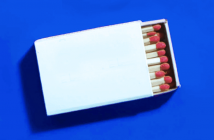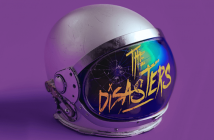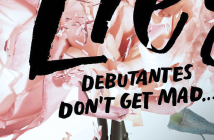Earlier this year, somewhat on a whim, I decided to make a survey about book buying habits – specifically, pre-orders and how effective pre-order incentives are.
I kept the answers on the form pretty basic and an option to leaves comments or notes, along with age range to determine what teens specifically liked best. There were 545 responses.
According to this survey, most people don’t pre-order books. Incentives are unlikely to sway a person who wasn’t going to pre-order to do so; most people reported it’s only happened a couple of times. Teens are slightly more likely to be swayed by incentives than adults, but the numbers aren’t massively different.
Pre-order incentives do not create sales; most readers reported that books they’ve pre-ordered for the incentive are ones they would’ve purchased eventually anyway.
Of those who pre-ordered, some people prefer to pick up a book in person so they don’t have to wait for delivery or they can make sure they get a copy that isn’t banged up. Others prefer to pre-order from their local store and don’t have a way to submit proof of purchase for incentives. Those who pre-order ebooks aren’t sure if that counts for incentives, but mentioned they prefer ebooks to minimize clutter anyway, so incentives don’t have much draw.
There were other groups of readers who are just excluded from most incentives. International readers are rarely included in incentives for legal reasons, but if they purchase the book, they still wanted to be eligible for something – it’s expensive, but options like a signed bookplate could still go a long way. Readers who primarily rely on libraries often can’t feasibly pre-order books; more authors have been including the option to request the library purchase a book or going on a library waitlist as a way to qualify for incentives.
“I wish that the preorder campaigns would last through the first week of the on-sale date. Also, I hate when they run out of swag waaay before the book comes out.”
“I really don’t like bookplates with just the cover image. I have the cover on the book. I bought it. I’d like a quote or some other kind of design that’s unique.”
As for what kind of pre-order incentives are the most effective, it’s a pretty mixed bag. Some said they only wanted useful items, but pins, buttons, and artwork were also very popular answers. I forgot to include digital incentives, like bonus content (bonus chapters, outtakes, or alternative PoVs), but that came up often in comments. Signed books and bookplates were in big demand, especially from international readers and readers who don’t live near the big cities that typically get chosen for book tours. Being able to order a signed edition or a bookplate for their book was a big draw.
“I have a debut about to come out. I chose not to do pre-order incentives. It feels to me like they are more useful for established authors than debuts. I don’t know why anyone would want swag from my book when they aren’t already a fan of my writing. Those in my debut group who have chosen to do pre-order incentives have mostly not seen a lot of participation.”
The comments also revealed that incentives are not particularly helpful for debut authors. People want to support sequels in series they love and they want to support their auto-buy authors, but there’s no guarantee they’ll love a debut or want anything collectible for it. Some noted they want to support diverse debuts when possible, but it’s lower priority than supporting already loved authors. It’s better to save the money and resources and invest that into promoting future books, which are also likely to get less of a marketing push.
There was concern about the cost of these pre-order incentives, as they’re usually funded and managed by the author. They’re already getting the book and supporting an author they love, so readers don’t feel an author should be spending money to provide more things. Others worry about the incentives running out before they get in receipts or just never arriving, though only one person reported this happening to them. One commenter summed it up by saying, “My incentive is that it helps my authors and the series is more likely to continue.”
My personal take away from this survey is that we put too much emphasis on pre-order incentives. Authors are going to extremes spending money on goodies that are wonderful and appreciated, but not necessarily having the effect they’d hoped for. It does guarantee more first week sales, since a lot of people may not have gotten around to purchasing the first week, but it’s not likely to boost overall numbers.
“I think preorder giveaways used to be fun and exclusive but now everyone does them so nothing really stands out. I would rather have extra materials to read than more ‘stuff.’ I’ve only entered a preorder giveaway once.”
I continue to think that incentives should extend to the first week of a book’s release. People provided a number of reasons for not pre-ordering, many of which boiled down to wanting to support local bookstores,which I think we can all agree is a good thing. While this didn’t come up in the survey, I speak from experience when I say there are also readers who want to go to launch-week events to support authors and buy the books at the stores hosting the event. Those readers are stuck between wanting to pre-order and enjoy the incentive and wanting to support the bookstore hosting the event, which is always encouraged. If nothing else, incentives should be available at events in the first week of release.
Ultimately, pre-orders are always going to be important. And pre-order incentives might be flashy and might help boost first week sales for established authors. But they don’t generally create more sales for a book and they aren’t going to be overly effective for debut authors.




